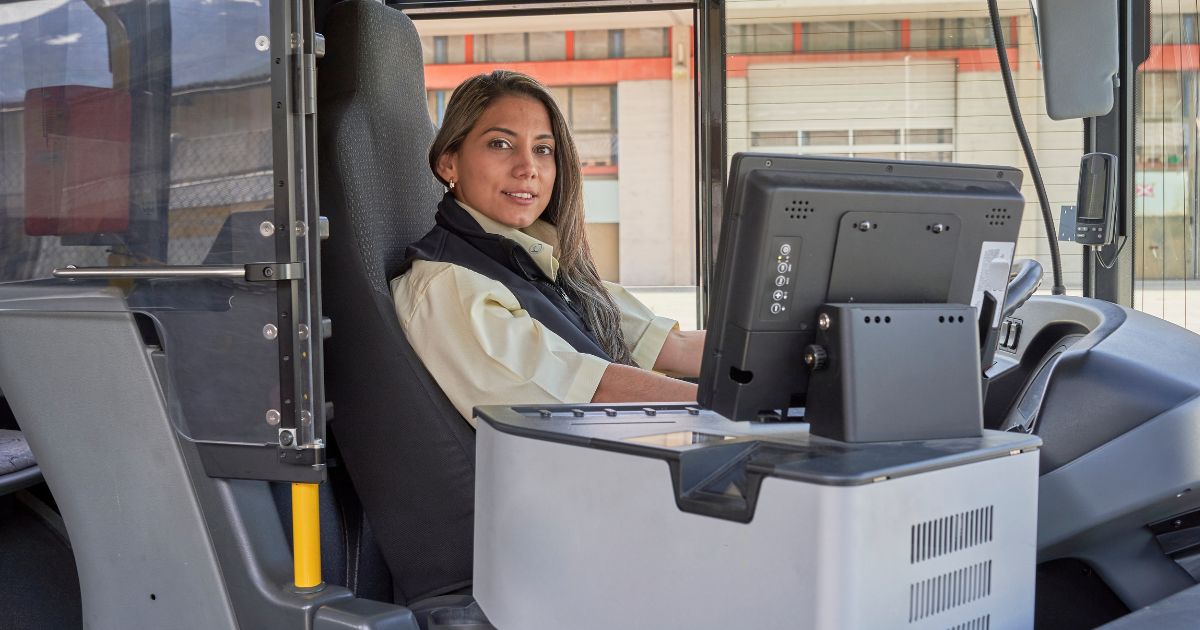
Andie* has been a bus driver for a metropolitan agency for several years. An outgoing, people person, she’s found the job to be a good match for her personality, and she takes seriously her responsibility to keep her passengers safe. But recently, Andie’s found herself dreading the workday. And that’s not surprising. Her agency is constantly short-staffed since Covid, so her shifts start earlier and end later. Staff shortages also mean fewer mechanics, so standard bus maintenance has been delayed – and that’s resulted in some breakdowns, like a failed automated passenger counter which meant that for weeks she had to count riders as they boarded the bus.
The trips never end – she has to get through each bus run regardless of stressors like bad weather or heavy traffic. Even worse, Andie must cope with unruly, and sometimes potentially violent, passengers. It seems to her that, since Covid, she has more interactions with problematic riders. Some abuse fentanyl or other illegal drugs while on the bus. Others are riders who refuse to pay their fare. It’s not Andie’s job to police her riders, and she is unhappy that she receives little support from her agency when she is putting herself at risk. And that risk is real – every week there are news stories about bus drivers who have been threatened or attacked. All the while, Andie carries the heavy responsibility of ensuring her passengers are kept safe.
Years ago, Andie knew her regular riders and enjoyed greeting them each morning. Now many of those riders are gone and she feels more isolated and less appreciated for her work. It’s no surprise then, that she is considering leaving the business for a more traditional office job that offers her security, interactions with colleagues, and better pay – not to mention access to coffee breaks and bathrooms.
Andie isn’t alone in considering a switch. Since Covid struck, 96% of transit agencies are reporting staff shortages. Almost half of them will think like Andie and take a job outside of transit.
How can agencies keep their drivers behind the wheel? Higher pay, pension increases, and sign-on bonuses for drivers need to be prioritized. And some agencies are starting to do just that, including Boston’s MBTA (Massachusetts Bay Transportation Authority) , Charlotte Area Transit System and Richmond Virginia’s GRTC. Additional hardware and technology for buses, such as onboard security cameras, transit signal priority, and a direct communications line to area police can also help keep drivers on the job. In recent contract negotiations, operators have also asked for additional vacation days and holidays, extra pay for working on holidays or scheduled off days, and better access to employee facilities like bathrooms.
Agencies currently scrambling to recruit staff will have to obtain the budget for this. But the cost of losing experienced operators like Andie may make that worthwhile.
*Name and photo have been changed to protect her privacy